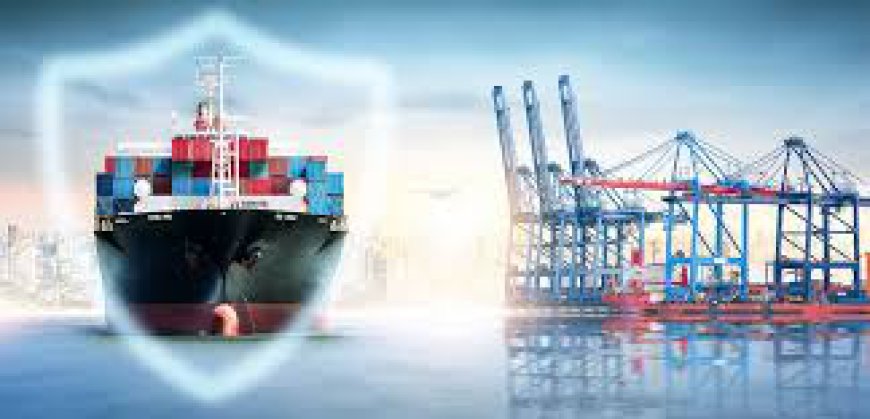Cargo & Freight Insurance: Protecting International Shipping
Cargo & Freight Insurance

In today's interconnected world, international trade is critical to economic progress. Product transportation, whether by air, sea, or land, entails several dangers that can threaten shipment safety and integrity. Here's where cargo and freight insurance come into play. Cargo and freight insurance provides a key safety net, protecting the value of products in transit and allowing businesses to operate confidently in an unpredictable climate.
What is cargo and freight insurance?
cargo and freight insurance is a type of insurance that covers the loss or damage of commodities during transportation. It applies to internal and international goods, regardless of the mode of transportation—whether by road, Rail, air, or sea. While logistics companies make every effort to assure safe delivery, several external circumstances can have an impact on cargo conditions. Natural disasters, accidents, theft, and even basic unfair treatment during loading and unloading can result in large financial losses. Without sufficient insurance, these risks could bankrupt firms, particularly those that rely substantially on the prompt and safe delivery of their goods.
Types of Cargo and Freight Insurance
Cargo and freight insurance plans are classified into numerous varieties, each customized to the shipper's or consignee's individual requirements. The key categories are:
Marine Cargo Insurance: Designed primarily for products transported by sea, this coverage protects against risks such as sinking, fire, and collision. It also covers losses due to adverse weather, piracy, or handling accidents at port
Air Cargo Insurance: This insurance is designed for items shipped by air and covers risks such as damage, theft, or loss during transit. Although air freight is often speedier and more secure, the possibility of accidents or handling errors remains.
Land Cargo Insurance: This policy protects products transported over land by truck or train from potential hazards such as theft, vehicle accidents, and natural catastrophes.
All-Risk Insurance: This comprehensive coverage protects against the majority of losses or damages, with the exception of those explicitly stated in the policy. It is commonly utilized for high-value items or when the shipper want to provide maximum security.
Named Perils Insurance: Unlike all-risk insurance, this policy exclusively covers the risks specified in the contract. It's generally less pricey, However, it offers more restricted protection.
Importance of Cargo and Freight Insurance
The significance of cargo and freight insurance cannot be emphasized, particularly in a global economy where supply chains cross several countries and continents. Here are some major reasons why corporations should consider it essential:
Risk mitigation: Even the best logistics companies cannot guarantee that items will always arrive safely. Extreme weather, accidents, and theft are all examples of factors beyond their control that might impede shipments. Insurance provides peace of mind by assuring that firms do not suffer major financial losses if something goes wrong.
Legal Protection: International trade entails a complicated web of legal agreements and regulations. In some circumstances, local laws may mandate specific types of cargo insurance, especially when shipping products via high-risk zones. Insurance coverage can also help Businesses resolve liability challenges to ensure they meet their legal duties.
Financial security: For numerous businesses, particularly smaller ones, the loss of a single cargo can have catastrophic financial effects. By investing in cargo insurance, businesses may protect their balance sheets from unanticipated disruptions.
Improved Business Reputation: Companies that emphasize cargo and freight insurance offer a dedication to dependability and professionalism. Customers and partners are more likely to trust businesses that take precautions to preserve their products, resulting in stronger relationships and recurring business.
How to Select the Right Cargo Insurance Policy
Several things must be considered while selecting the appropriate cargo and freight insurance policy. First, organizations must determine the value and nature of the products being delivered. High-value or perishable goods A broader scope of coverage may be required. Second, the mode of transportation and territories involved in the shipment influence the proper policy. Shipping through high-risk zones, for example, may demand enhanced protection against piracy or terrorism.
It is also critical for businesses to partner with trustworthy insurance providers who specialize in cargo and freight. These providers can provide personalized policies that address specific business needs, ensuring that the organization is not underinsured or overpaying for needless coverage.
Conclusion
cargo and freight insurance are critical components of contemporary logistics and international trade. It reduces the financial risks connected with commodities transportation, allowing firms to operate with confidence in an unpredictable environment. Understanding the many forms of insurance available and the benefits they provide allows businesses to make informed decisions that safeguard their assets, ensure smooth operations, and maintain great relationships with customers and partners. In an era where supply chains are more complex than ever, cargo insurance is not simply an option; it is a requirement.
